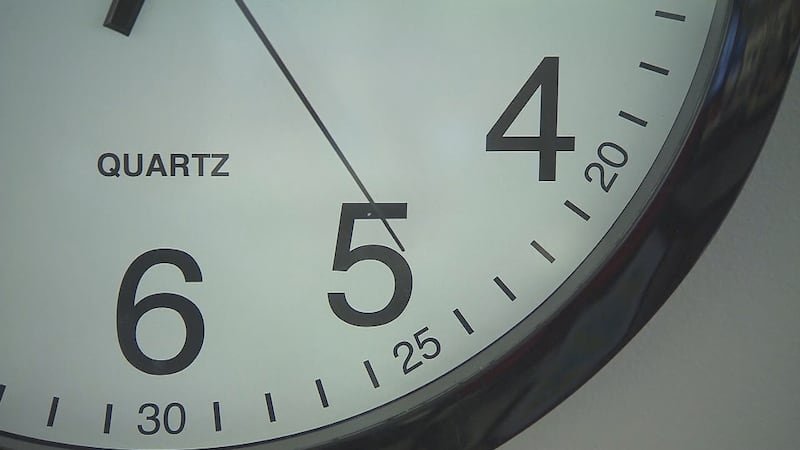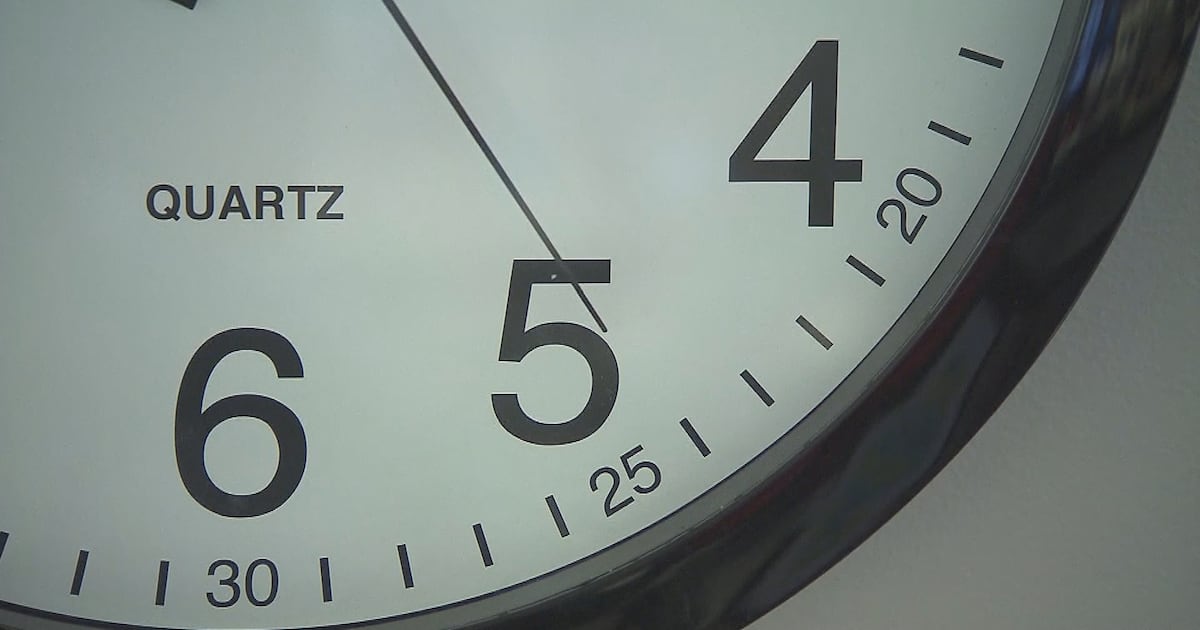Sleep consultant Amanda Jewson shares tips on how to avoid sleep disruptions after the time change this weekend.
Clocks turned back one hour at 2 a.m. Sunday, switching from daylight saving time to standard time. The increase in daytime darkness can be an adjustment that can affect sleep.
Amanda Jewson is a sleep consultant. She says when clocks “fall back” it can be hard, but good for human bodies.
“We like to go to bed later,” Jewson said. “When we fall back on the clock we’re going to bed later.”
Jewson says the time change also lets us sleep in as we regain the hour we lost with the time change in the spring but people still report feeling groggy after the switch to standard time.
“That could be related to some of the light exposure,” she says. “The days are shorter. The darkness is longer, so it can be tough on us.”
Parents can face additional challenges when early rising children get out of bed even earlier, says Jewson.
“Psychologically that is really tough,” she says. To adapt, she recommends pushing bedtime a little later before the change.
Jewson’s other recommendations include a sunlight alarm clock.
“A sunrise alarm clock… can simulate light exposure in the morning.”
Jewson says actual daylight exposure is very important.
“Once the sun eventually comes out, go outside, experience light on your face, in your eyeballs, it’s going to tell you, ‘Hey, we should be awake and outside.’”
Spending time outside can be fantastic for energy levels, Jewson says. Though it can be difficult to get outside on a busy schedule in cold weather, she says getting outside for a few minutes during a break can make all the difference.
“We have a ton of evidence to show that morning sunlight specifically helps stabilize your circadian rhythm.”
This is important because Jewson says the time change affects your body’s internal clock.
“We have evidence to show it increases mood and increases energy,” she says. “I can’t stress how important it is enough and we need to tell Canadians this: you’ve got to go outside even if it’s cold outside.”
Jewson says it generally takes two to four weeks for our circadian rhythm to adjust but it is different for everybody. She says the best way to combat feeling slow and sluggish while you adapt is to go to bed and wake up at the same time every day.
 Time change A clock in an undated photo. (CTV News)
Time change A clock in an undated photo. (CTV News)

